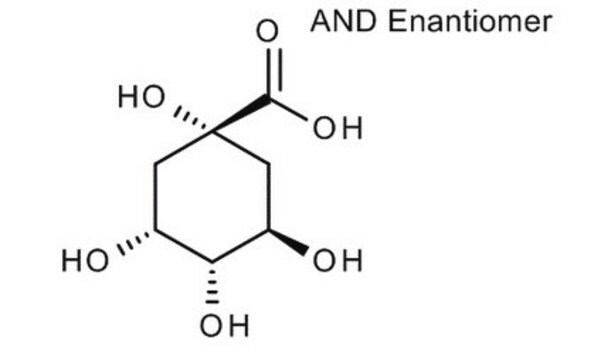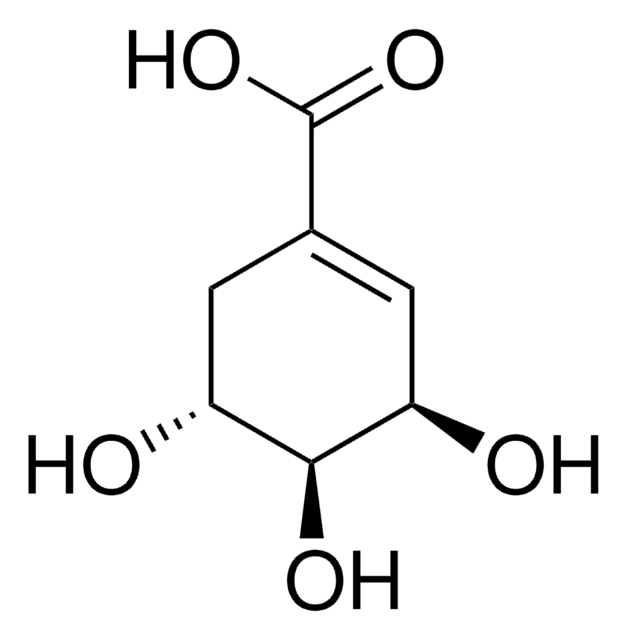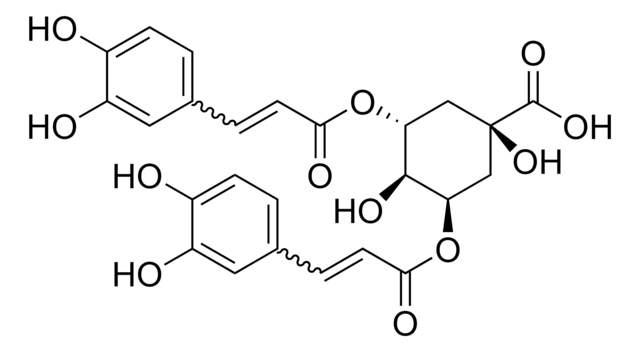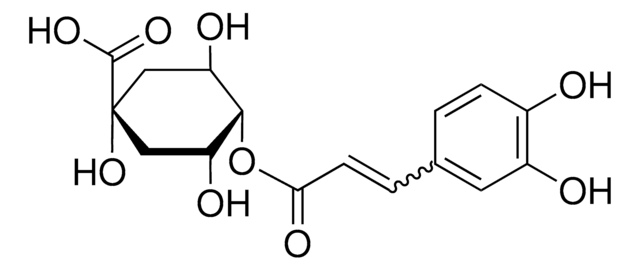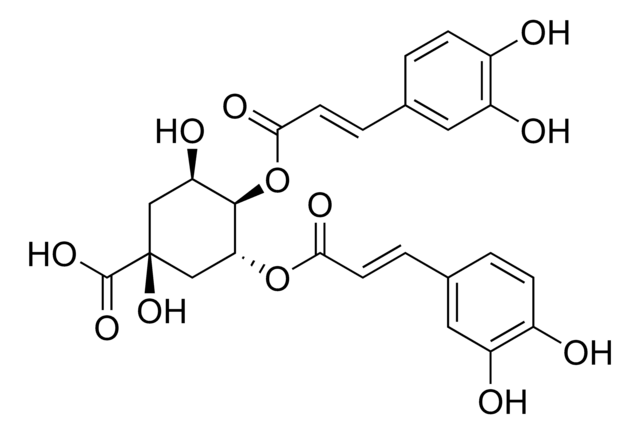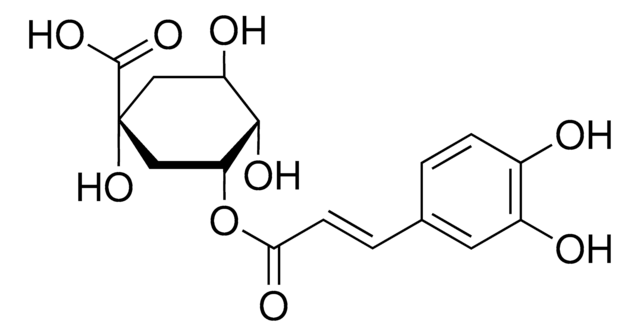138622
D-(−)-Quinic acid
98%
Synonym(s):
(-)-Quinic acid, (1alpha,3R,4alpha,5R)-1,3,4,5-Tetrahydroxycyclohexanecarboxylic acid, D-(-)-Quinic acid
About This Item
Recommended Products
Quality Level
Assay
98%
form
powder
optical activity
[α]20/D −43.9°, c = 11.2 in H2O
functional group
carboxylic acid
hydroxyl
SMILES string
O[C@@H]1C[C@@](O)(C[C@@H](O)[C@H]1O)C(O)=O
InChI
1S/C7H12O6/c8-3-1-7(13,6(11)12)2-4(9)5(3)10/h3-5,8-10,13H,1-2H2,(H,11,12)/t3-,4-,5-,7+/m1/s1
InChI key
AAWZDTNXLSGCEK-WYWMIBKRSA-N
Looking for similar products? Visit Product Comparison Guide
General description
Application
- A chiral selector electrolyte along with copper(II) sulfate. This electrolyte is utilized in chiral resolution DL-tartaric acid by ligand-exchange capillary electrophoresis method.
- A starting material in the synthesis of stereoisomers of 3,4,6-trihydroxyazepanes, 7-hydroxymethyl-3,4,5-trihydroxyazepanes, and 3,4,5-trihydroxyazepanes, as potential inhibitors of glycosidase.
- A precursor for the preparation of trihydroxy piperidine derivatives and (+)-proto-quercitol glycosidase inhibitors.
Signal Word
Warning
Hazard Statements
Precautionary Statements
Hazard Classifications
Eye Irrit. 2
Storage Class Code
11 - Combustible Solids
WGK
WGK 1
Flash Point(F)
Not applicable
Flash Point(C)
Not applicable
Personal Protective Equipment
Choose from one of the most recent versions:
Already Own This Product?
Find documentation for the products that you have recently purchased in the Document Library.
Customers Also Viewed
Our team of scientists has experience in all areas of research including Life Science, Material Science, Chemical Synthesis, Chromatography, Analytical and many others.
Contact Technical Service
